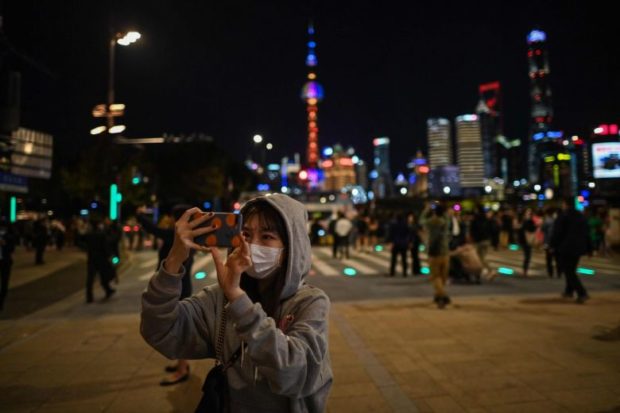As winter looms, China braces for COVID-19 resurgence

Infectious diseases experts had been warning that a dip in the mercury could lead to a spike in cases. AFP via The Straits Times/Asia News Network
BEIJING — As China settles into a chilly autumn, epidemiologists have been warning of a possible resurgence in coronavirus infections that could come with lower temperatures, forcing authorities to walk a fine line between containing the virus and keeping its barely-recovered economy open.
Yet there are early indications of the complexity: Xinjiang, China’s largest region, has seen two fairly serious outbreaks in the past four months.
Since the summer, as cases started to fall and intra-province travel restrictions were lifted, infectious diseases experts had been warning that a dip in the mercury could lead to a spike in cases.
As it gets colder, people stay indoors and close their doors and windows, creating poor ventilation, said Dr Koh Hau Tek, deputy chief medical officer of Jiahui Hospital in Shanghai.
In an enclosed space, when someone sneezes or coughs, the droplets linger, and could lead to an increase in respiratory tract diseases.
Article continues after this advertisement“This is why when the weather gets colder, we see more cases of influenza. And the same could be said for Covid-19, which is also a respiratory tract disease,” said Dr Koh.
Article continues after this advertisementChina is gearing up for a colder than usual winter as the La Nina weather pattern occurring this year is likely to bring more frequent cold spells. With the pandemic continuing to rage in the Americas, and Europe experiencing a second wave of infections, there are increased concerns of imported cases.
Should borders be reopened, there could be up to 7 million infections in the country and 200,000 deaths, the country’s top epidemiologist warned.
“Our country is coming under global pressure (about our strategy to keep borders closed) ,” Dr Wu Zunyou of the China Centre for Disease Control and Prevention said in an interview with China Newsweek, adding that there have been international calls for the country to continue reopening.
China does not want to see its efforts in containing the outbreak wiped out but the country’s hard-won success is precarious.
Last weekend, a new cluster surfaced in the far western region of Xinjiang, an area that shares a border with seven countries.
By Tuesday, 183 infections had been detected, all of them linked to a 17-year-old garment factory worker in Kashgar who went home to see her parents in a nearby village only every fortnight or so. Like the previous outbreak in mid-July in Urumqi, the capital of Xinjiang, the details are scanty.
But most Chinese have little to worry about because there the virus is largely under control in the general population, Dr Wu said.
In much of the country, life feels normal again, with the economy showing strong signs of a rebound last quarter.
“As long as our country adheres to the containment strategy, the possibility of a major epidemic in autumn and winter is unlikely,” Dr Wu said.
Still, concerns remain about another winter killer: seasonal influenza.
Globally, between 3 and 5 million people fall seriously ill with the flu every year, which kills between 290,000 and 650,000, according to data from the World Health Organization.
Yet there appears to be fewer cases than usual this year, the WHO said, partly because the pandemic has kept people worried of catching Covid-19 away from healthcare providers, while also redirecting medical resources, which could lead to incomplete reporting of cases.
Coupled with a coronavirus outbreak, the worry is that the healthcare system could become overwhelmed, Dr Wu warned.
While doctors have advocated getting vaccinated for the seasonal flu, general practitioners have said they are in short supply this year.
“It could be because there’s a higher demand for it, so they stock we’ve been assigned is lower,” said a doctor at a private hospital who declined to be named in order to freely discuss the issue.
“But many of us believe another reason is because manufacturers have deployed resources to work on the new Covid-19 vaccine, which means less flu vaccine is getting produced,” he said.
For more news about the novel coronavirus click here.
What you need to know about Coronavirus.
For more information on COVID-19, call the DOH Hotline: (02) 86517800 local 1149/1150.
The Inquirer Foundation supports our healthcare frontliners and is still accepting cash donations to be deposited at Banco de Oro (BDO) current account #007960018860 or donate through PayMaya using this link.